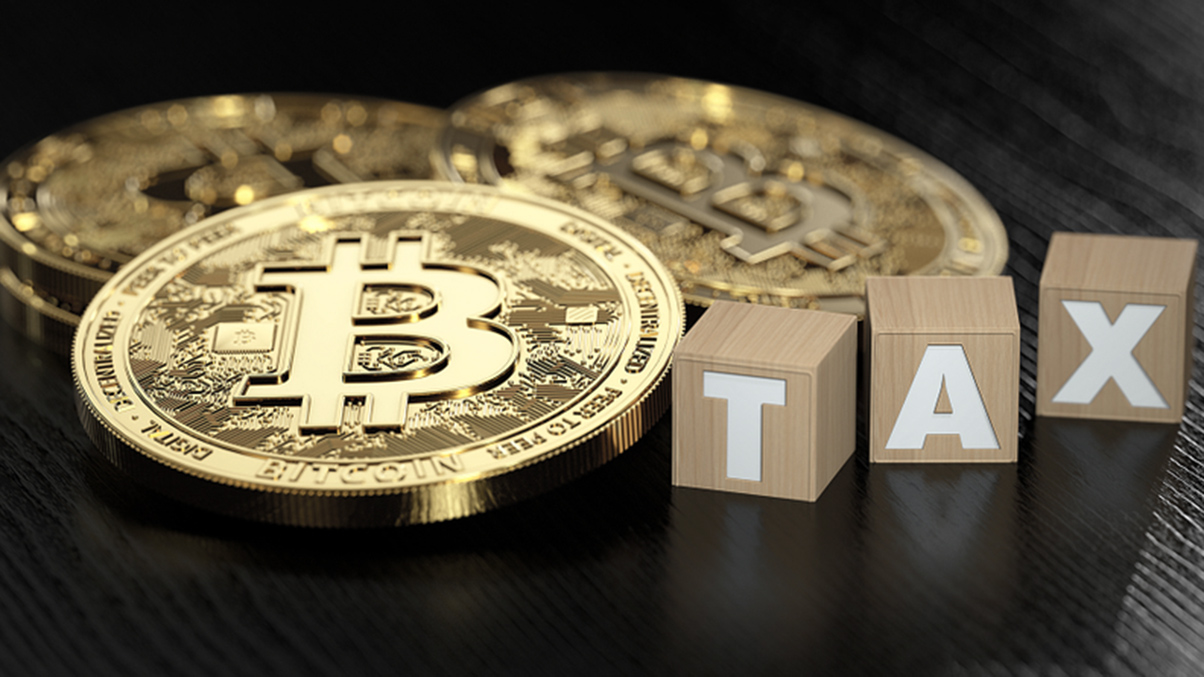In one of the most significant High Court decisions to date concerning crypotocurrencies, members of the Cybersecurity team at Stewarts, led by partner Marc Jones, obtained an asset preservation order (APO) over Bitcoin worth more than £1m stolen by fraudsters, which were then successfully recovered for our client. In making the APO, the court had to consider the most important unresolved legal issue about Bitcoin: is Bitcoin legal property (as opposed to mere data or information) and, if so, what kind of property is it?
The answer to the question of whether Bitcoin is legal property is of fundamental importance not just for Bitcoin but for all cryptocurrencies and other digital assets recorded on a distributed ledger. It will affect not only the ability of victims of fraud to secure stolen cryptocurrencies but a wide variety of other commercial issues, especially how insolvency practitioners and executors of estates should deal with cryptocurrencies. Marc Jones reviews his client’s case here.
The facts
Stewarts acted for Mr Liam Robertson, one of the largest cryptocurrency traders in Europe and the Middle East, and the CEO of Alphabit Fund, a leading digital asset management advisory and management business.
Mr Robertson was the victim of a “spear phishing” attack. The email account of a firm in which Mr Robertson was making a personal investment was hacked, and Mr Robertson’s intended investment of 100 Bitcoin (at the time worth approximately £1.2m) was misdirected to the fraudster(s). These were the “persons unknown” who were sued as the first defendant.
Using the services of Chainalysis (a blockchain investigations firm), it was quickly established that 80 Bitcoin had been sent to a wallet held at Coinbase UK Ltd, the UK arm of San Francisco-based Coinbase, one of the world’s leading cryptocurrency exchanges. (The other 20 Bitcoin were sent to various local Bitcoin exchanges.) Stewarts applied for an APO to secure the 80 Bitcoin and a Bankers Trust order to permit Coinbase to reveal the identity of the individual who controlled the wallet containing the 80 Bitcoin. (A Bankers Trust order is an order that typically requires a bank to provide details ordinarily protected by the bank’s duties of confidentiality.) Coinbase was supportive of Mr Robertson’s claim but was limited in what it could do, given its contractual and regulatory obligations, unless complying with a court order.
The initial application was heard in the Business and Property Court by Mrs Justice Moulder, who made the APO. On the return date, Mr Justice Jacobs continued the APO.
Is Bitcoin “personal property”?
English law divides personal property (as distinct from real property, which Bitcoin is not) into two conventionally recognised categories: |”chose in possession” “chose in action”. The first is a “thing” that you can take physical possession of, and the second is a property right that can only be obtained or enforced through legal action.
At first blush, Bitcoin is neither. It is not a physical thing. The House of Lords in OBG v Allen made clear that intangibles are not chose in possession.
Also, a Bitcoin does not create a right against anyone. Unlike, for example, money in a bank account which creates a relationship of debtor and creditor, a Bitcoin is an intangible “thing” that does not depend upon a legal right enforceable against some other person in order to have value. In that sense, Bitcoin it is more like a bank note than the money in your bank account: the former has value simply by virtue of being a bank note; the latter depends upon the account-holder’s ability to enforce a right against the bank and the bank’s ability to pay). On this view, Bitcoin is information or data, which numerous English authorities have affirmed is not property.
While there is no English authority on the issue, the claimant relied on the decision of Simon Thorley IJ of the Singapore International Commercial Court in B2C2 Ltd v Quoine Pte Ltd [2019] SGHC(I) 03. This case held that Bitcoin are personal property that can be the subject of a trust.
The closest analogue in the English courts is the decision in Armstrong DLW GmbH v Winnington Networks Ltd [2012] EWHC 10(Ch), a case which concerned the fraudulent transfer of carbon emissions allowances known as EUAs. In that case, the court held that the claimant had a proprietary restitutionary claim for the value of the EUAs and that the EUAs constituted “a chose in action or some form of other intangible property”.
There is also a good deal of academic and regulatory commentary that takes the view that Bitcoin must be “property”. For example, the Financial Markets Law Committee (FMLC) (July 2016) took the view that “it may be convenient to understand them… as a kind of hybrid: ‘virtual chose in possession’. That is, intangible property with the essential characteristics of chose in possession.” This passage was referred to by Mrs Justice Moulder at the hearing.
The claimant argued that the transfer of 100 Bitcoin did not transfer title to the first defendant, the first defendant could not therefore transfer title to the second defendant (assuming they were not the same person and leaving aside any possibility of a good faith purchase for value, of which there was no evidence), so title to the 100 Bitcoin remained with the claimant.
Mrs Justice Moulder accepted that there was a serious issue to be tried on the various matters of the proprietary claim and made an asset preservation order preventing any dealings with the 80 Bitcoin or any instructions being given to the Coinbase to transfer them. Mrs Justice Moulder also made Bankers Trust orders enabling Coinbase to disclose information relating to the second defendant.
While the decisions of Mrs Justice Moulder (and Mr Justice Jacobs) are not final, they are believed to be the first time an English court has considered in any detail whether cryptocurrencies are property and are susceptible to proprietary claims and remedies, including proprietary injunctions (with all the advantages they provide to claimants in fraud claims).
Why does it matter?
1. It is important to note that the claimant’s original application sought a broader freezing order against “persons unknown”. Despite the strong evidence of fraud, the judge was not satisfied that the “balance of convenience” or the “risk of dissipation” requirements had been met to justify the making of a freezing order against “persons unknown”. A major concern was the fact that the 100 Bitcoin had first been transferred from Mr Robertson’s wallet to another wallet, and then 80 Bitcoin were transferred to the Coinbase wallet. At the first hearing, before the Bankers Trust order was obtained and the identity of the second defendant established, the claimant and court did not know whether the holder of the first wallet (whom the court was prepared to accept there was a fair inference was the fraudster) was the same person as the holder of the second (Coinbase) wallet.
Mrs Justice Moulder commented: “We know nothing about this person who perpetrated the fraud. We do not know his identity. We do not know his assets. We do not know if a freezing order would achieve anything whatsoever.” Of the holder of the Coinbase account, he said: “My real issue is we do not know who this person is. So, I cannot weigh up, it seems to me, on the balance of convenience whether it is just because, as I say, I could be preventing an entirely innocent person from running their business, and I just know nothing. I mean normally at least when someone comes on an ex parte injunction I am told ‘Well he – yes, he is running a business but on balance we need this injunction because he is going to dissipate the assets’. Here I do not even know that this is the person who was engaged in this fraud… Why could he [first defendant] not have used it to – I do not know – buy motorcars or anything. I mean he could have done anything with the money [ie Bitcoin].”
It does not seem too much of a stretch to say that any claimant who has been defrauded of a cryptocurrency is going to face that difficulty. A key characteristic of cryptocurrencies is the pseudonymity or anonymity they confer on users. It is difficult enough (but possible) to trace stolen Bitcoin through the blockchain. But if claimants need to identify “persons unknown” defendants holding stolen Bitcoin before a freezing order will be granted, then the chances of recovering those assets shift heavily in favour of the alleged fraudsters.
2. As noted above, Mrs Justice Moulder was not satisfied that the “balance of convenience” and “risk of dissipation” requirements for a freezing order were satisfied. It is difficult to see how they could have been made out against “persons unknown”. The benefit of an APO is that neither requirement applies. It is enough that the court is satisfied that there is a serious issue to be tried concerning a proprietary claim. For victims of fraud, this Is the key reason why it matters whether cryptocurrencies are treated as personal property: the obstacles to securing stolen cryptocurrencies are reduced significantly.
3. Whether cryptocurrencies are chose in action or chose in possession also matters. The defences that are open to a defendant who has received a stolen cryptocurrency are probably wider if the cryptocurrency is treated as a chose in possession than if it is treated as a chose in action. The starting point for both is the ‘nemo dat’ rule (which states that the purchase of a possession from someone who has no ownership right to it also denies the purchaser of ownership).
The main exception to that rule is the ‘bona fide purchaser for value without notice’ rule (which states that a person who buys property in good faith and is not on notice of defects in the transferor’s title takes good title). While that applies to both types of personal property, it is far more difficult to see how it could arise in the case of a chose in action (and authorities on its application to chose in action are hard to find).Also, there are far more statutory defences available in respect of chose in possession (for example sale of goods legislation, which was a point touched upon by Mrs Justice Moulder in the hearing). In short, the ability to satisfy the court that there is a serious issue could well be harder to satisfy if cryptocurrencies are classified as chose in possession.
4. Outside the context of fraud litigation, whether cryptocurrencies are property at all, and if so, whether they are treated as “things” or “rights” will be a matter a importance in a variety of commercial contexts (for example taxation, sale of goods legislation, transfer of title, the taking of security, etc.) and perhaps especially in insolvency scenarios. The final point is one picked up by the FMLC, which observed that if it is a chose in action: “The office-holder would need to know against whom action could be taken to realise the value of the virtual currency.” If it is a chose in possession, it said: “It is vital for a trustee in bankruptcy, liquidator or secured creditor to know by what means, if any s/he is able to obtain possession of the coins or tokens.”
Hopefully, Robertson v Person Unknown marks the start of the English courts grappling with and bringing English law up to date with a new asset class that is not going away.
This case was reported by CDR, you can view their coverage here – High Court tackles Bitcoin ‘property’ first.
You can find further information regarding our specialist Cybersecurity team’s expertise and experience on our Cybersecurity and Incident Response page.
If you require assistance from our team, please contact us or alternatively request a call back from one of our lawyers by submitting this form.
Subscribe – In order to receive our news straight to your inbox, subscribe here. Our newsletters are sent no more than once a month.






